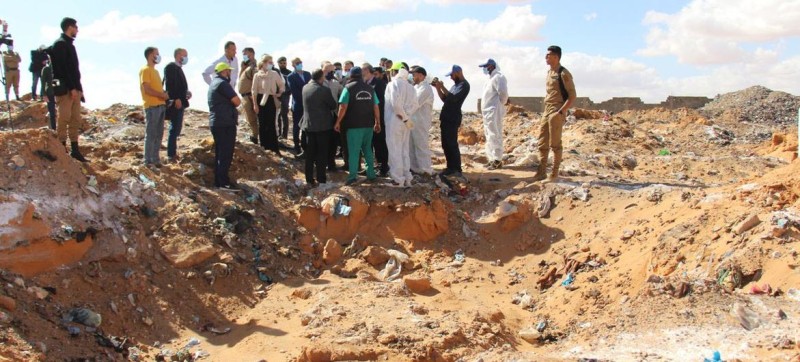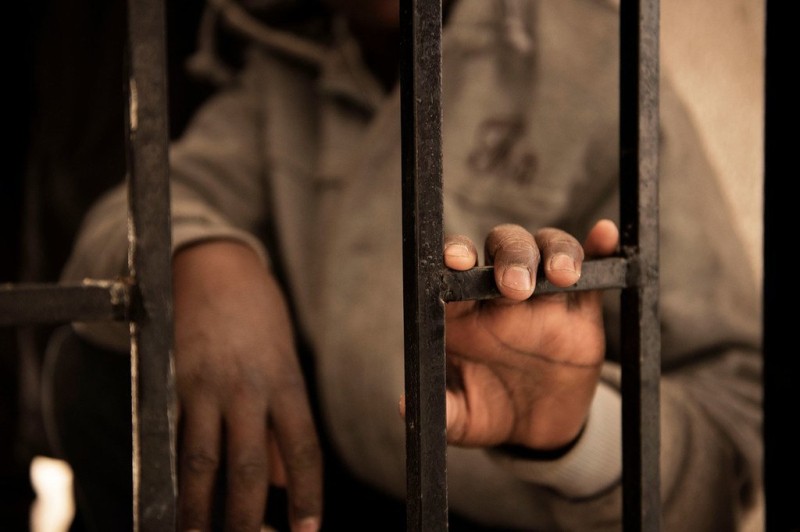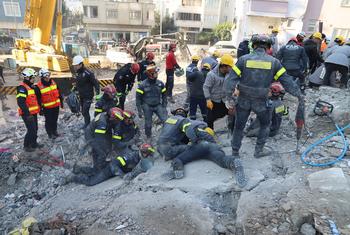
ICC At a landfill site in Tarhunah, Libya, over 50 bodies have been identified across a number of mass graves. (file)
“Libyan authorities, armed groups, smugglers, and human traffickers should not assume that the eyes of the international community have now left Libya,” UN High Commissioner for Human Rights Volker Türk said.
Tweet URL
“It is crucial that we redouble efforts to secure accountability for past violations and continue to monitor the reality on the ground to prevent future violations,” he said, echoing calls for action made by the recently concluded Independent Fact-Finding Mission (FFM) on Libya.
Oil-rich Libya has been in turmoil since the ouster of former decades-long leader Muammar Gaddafi, which has seen rival administrations and warring militias compete to fill a power vacuum. The UN-recognized Government of National Accord is based in the capital Tripoli and the forces of General Khalifa Haftar’s so-called Libyan National Army control much of the east and southern areas.
Call for new mechanism
In its final report, the FFM recommended that the UN Human Rights Office establish a distinct and autonomous mechanism with an ongoing mandate to monitor and report on gross human rights violations in Libya, with a view to supporting Libyan reconciliation efforts, and assisting the Libyan authorities in achieving transitional justice and accountability.
Addressing the Council on Monday, FFM chair Mohamed Auajjar shared grim details, findings, and recommendations contained in its report.
“The situation in Libya is still very dire,” he said. “Violations continue unabated, and fundamental freedoms and the human rights situation have deteriorated.”
Widespread violence
After conducting more than 400 interviews, collecting more than 2,800 items of information, and undertaking 13 missions, including to Tripoli and Banghazi, as well as to countries including Italy, Rwanda, Malta, and the Netherlands, the Mission has found reasonable grounds to believe that crimes against humanity were committed against Libyans and migrants throughout Libya in the context of deprivation of liberty since 2016.
Findings confirmed the widespread practice of arbitrary detention, murder, torture, rape, enslavement, sexual slavery, and enforced disappearance, he said.
‘Crimes continue’
“The rapid, deep, and ongoing absorption of armed groups and their leadership into State-affiliated structures and institutions are of significant concern,” Mr. Auajjar cautioned.
“We regret that these crimes continue to be committed until today,” he added.
High Commissioner Türk stressed that his Office will strengthen its work on Libya, where the human rights situation continues to deteriorate amid widespread violence by armed actors, ongoing political deadlock, and deepening curbs on civic space.

© UNICEF/Alessio Romenzi A fourteen-year-old migrant from Niger rests his hand on a gate inside a detention centre, in Libya.
Crackdown on civil society
He raised deep concern over the intensifying crackdown on civil society, most recently through a Government decree declaring all national and international civil society organizations registered after 2011, illegal.
“Regulations concerning civil society should respect the fundamental rights of freedom of assembly and association, not suffocate and criminalize the work of those working for a rights-based future for Libya,” he said.
He also underlined the importance of holding national elections and working towards sustainable peace.

Türkiye-Syria Earthquake
DONATE!
Emergency and search-and-rescue teams have deployed to assess and prioritize urgent needs and to provide life-saving assistance following the devastating earthquake near the Türkiye-Syria border.

